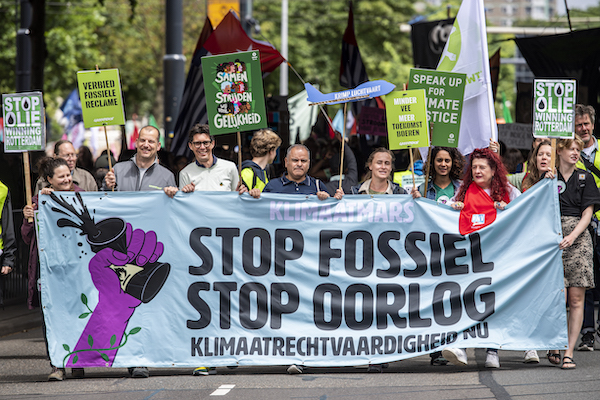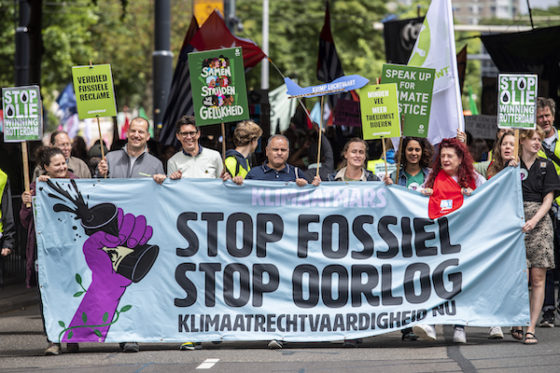War and climate change are driving Dutch to go green


A new survey has found that the Dutch have been living more sustainably over the past two years—from turning down their thermostats to eating less meat and flying less – and that climate change and war are behind the behavioural shift.
I&O Research, commissioned by the local authorities magazine Binnenlands Bestuur, surveyed 2,300 Dutch people and found that not only are people living more sustainably, but that their thinking has also changed.
‘What is striking is that not only flying itself, but also the attitude towards flying has changed,’ says researcher Bram Wolf of I&O Research. ‘Despite the expensive times, people are advocating for more expensive tickets and paying more for carbon offsetting. Flight remorse is also increasing.’
Findings
Because of this change in behaviour, the study found, Dutch households have produced 13% less CO2 over the past couple of years. ‘We are seeing a change in behaviour for the first time,’ says Wolf. ‘It goes across the board, so it is not just the effects of the energy crisis and the corona pandemic.’
The survey found that Dutch people are eating less meat, and that for the first time, the number of flexitarians is higher than the number of people who eat meat or fish daily. The average number of days per week that meat is on the menu has dropped from 4.7 in 2020 to 4.2 in 2022.
The number of people who are buying second-hand clothing has also increased—from 6% to 14%.
And although it’s unclear if climate change, coronavirus or higher energy prices are leading people to move more sustainably, the numbers show that compared to 2019, Dutch motorists are driving almost 2,000 kilometres less per year, a decrease of 16%.
The home front
Almost half the Dutch say they are taking fewer or shorter showers and turning down their thermostats. Some 36% have installed solar panels, compared to 26% in 2020. But at the same time, there has been an increase in the number of homes with air conditioning units, rising from 12% to 19% over the past two years.
People are also warming to the idea of a kitchen and heating system without gas, with saving money and saving the environment carrying equal weight. They want help to make the switch from local governments.
But there is increasing polarisation on climate change, with the research finding that the number of people who say the government should do less to reduce greenhouse gas emissions is also increasing, from 10% to 19% over the past year.
In addition, the survey found that 61% of Dutch people support higher prices for activities and goods that pollute more, such as flying and driving SUVs. This is supported by the European Investment Bank’s (EIB) annual climate survey, released Thursday, that found 63% of people questioned in the EU want energy prices to be tied to consumption, with the biggest consumers paying more.
Pessimism
Both the EIB and I&O surveys found that the populace is more pessimistic about the future. While worrying about climate change has remained stable in the Netherlands—some 7 out of 10 people are concerned—the number of people with a pessimistic view of their children’s and grandchildren’s future has increased from 46% to 56% since 2020, says I&O.
According to the EIB study, 84% of EU respondents said that if we do not drastically reduce our consumption of energy and goods in the coming years, we will be heading for a global catastrophe.
Young people and those with higher education levels are the most climate-conscious and, for the first time, their carbon footprint is less than lower income and less educated people says the I&O.
But it’s not all doom and gloom. The EIB found that 66% of EU people surveyed believe that the Russian invasion of Ukraine and its consequences should accelerate the green transition. The I&O found that 57% of the Dutch feel the same way.
Thank you for donating to DutchNews.nl.
We could not provide the Dutch News service, and keep it free of charge, without the generous support of our readers. Your donations allow us to report on issues you tell us matter, and provide you with a summary of the most important Dutch news each day.
Make a donation